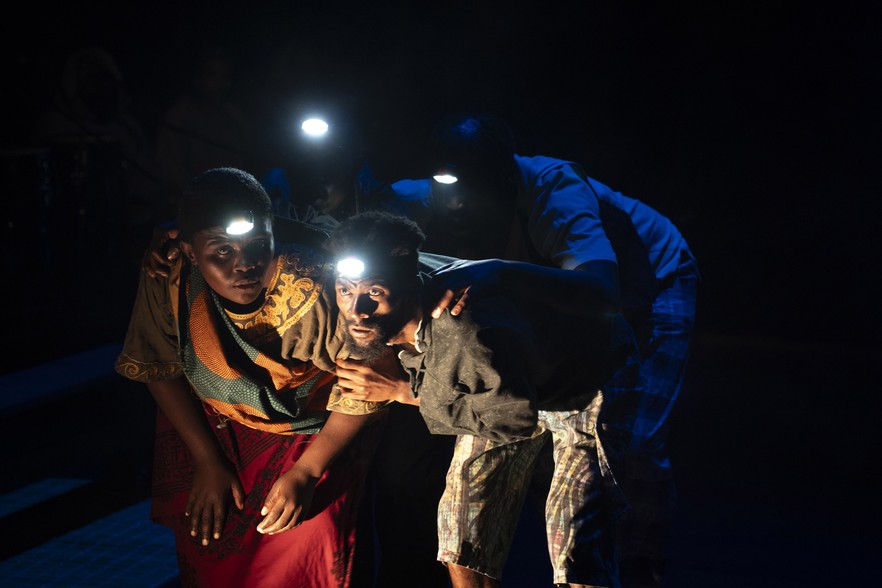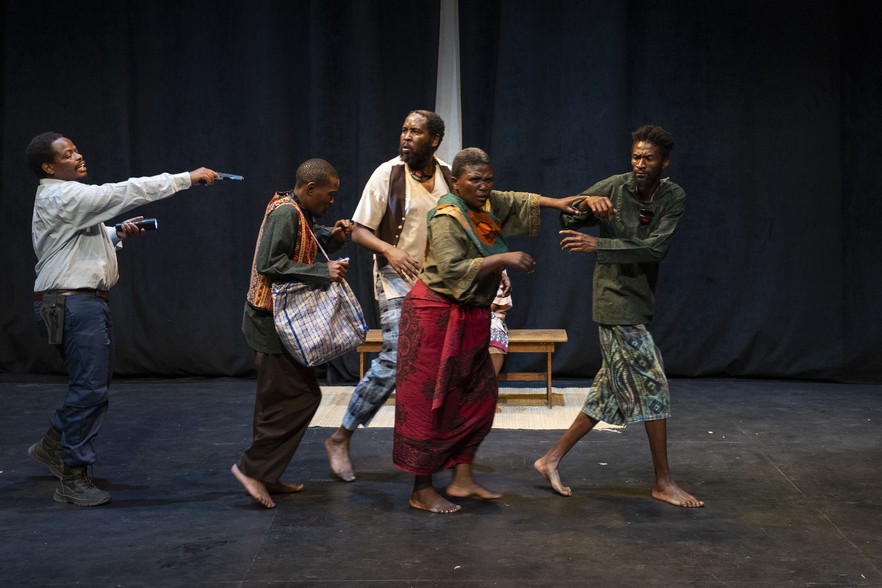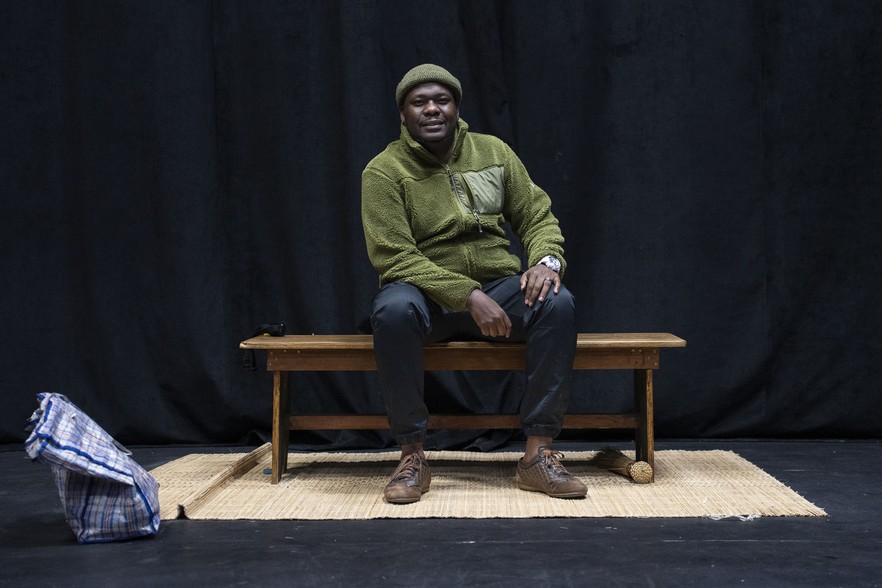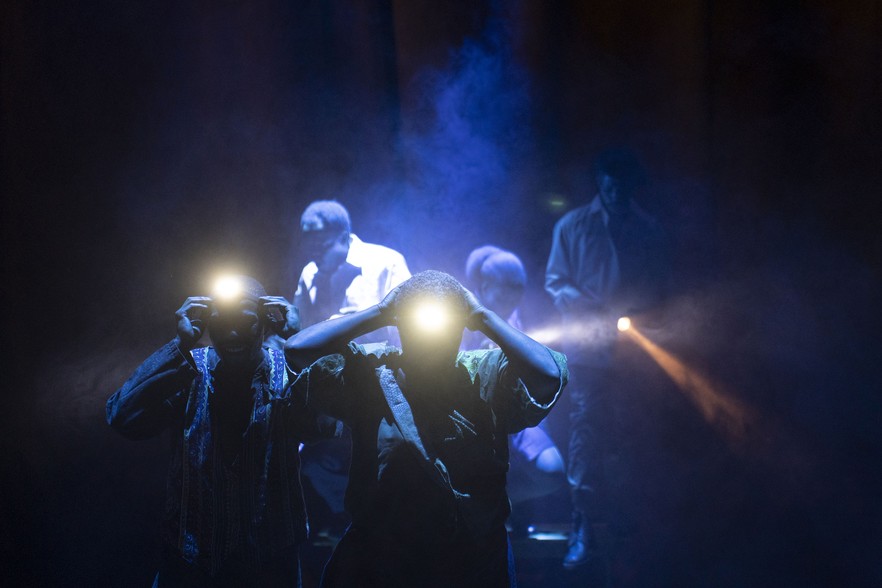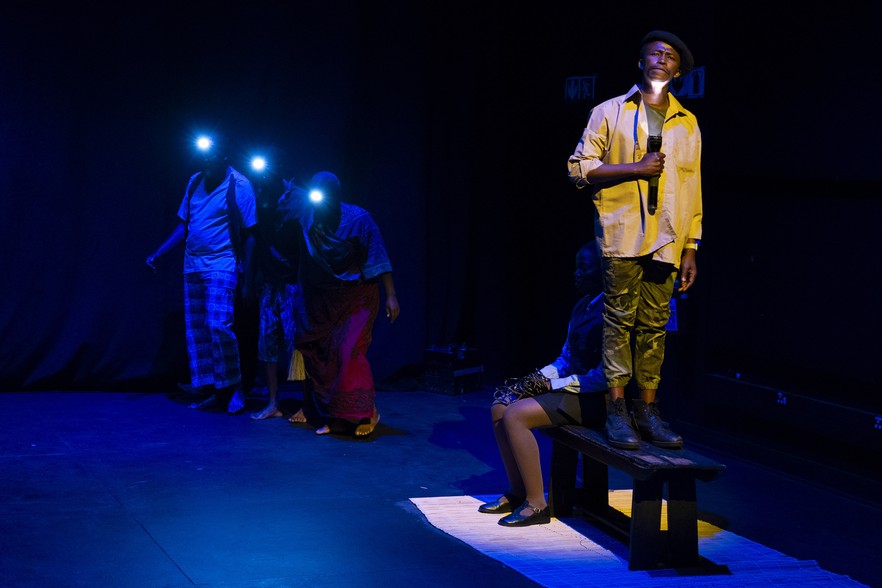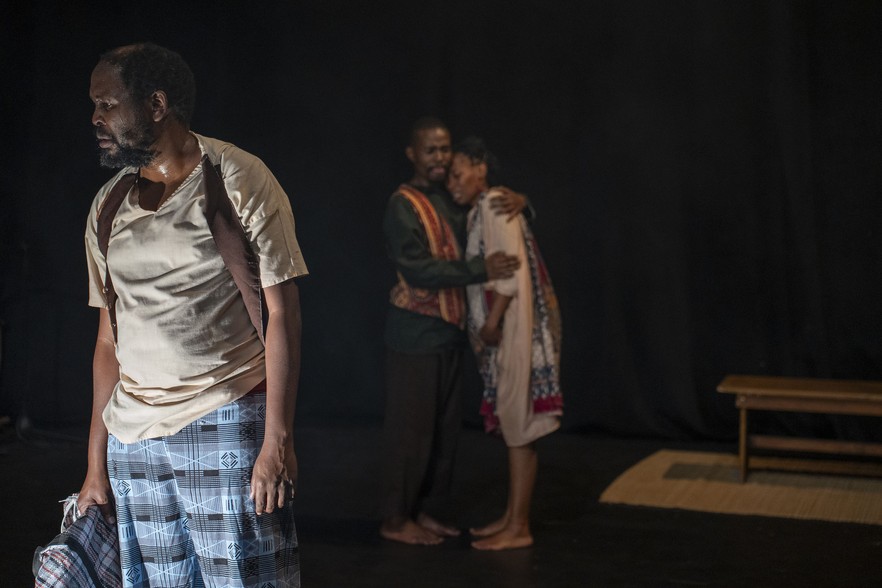New play challenges xenophobia
Graveland is running at the Market Theatre until Sunday, 1 June
Graveland is running at the Market Theatre in Johannesburg until Sunday, 1 June. The play challenges audiences to examine their personal biases and highlights systemic failures fuelling xenophobia in South Africa for nearly two decades. Photos: Ihsaan Haffejee
- A new production is tackling one of the most pressing issues in South Africa – xenophobia.
- Graveland is running at the Market Theatre until Sunday, 1 June.
- It challenges audiences to examine their personal biases and highlights the systemic failures that allowed xenophobia to remain unchecked for nearly two decades.
- The timing of the play coincides with the recent xenophobic violence in Addo in the Eastern Cape this week.
A new production staged at Johannesburg’s Market Theatre tackles one of the most pressing issues in South Africa – xenophobia.
Graveland runs until Sunday, 1 June. It follows the journey of Butana, an immigrant in pursuit of a better life which ends in a tragic xenophobic attack. The story is told through his brother’s eyes, when the family travels to South Africa to reclaim Butana’s spirit. The family tries to retrace Butana’s steps, revealing his struggles, including encounters with corrupt officials in South Africa.
This story challenges audiences to examine their personal biases and highlights systemic failures that fuel xenophobia.
Actor Abongile Matyutyu (left) plays a corrupt South African police officer brandishing his weapon towards the migrant family in a scene from Graveland.
In 2008, more than 60 people were killed and nearly 2,000 injured. The violence displaced tens of thousands of immigrants in South Africa.
But it was the shocking images of Emmanuel Sithole’s murder in Alexandra in 2015 that stuck with Thembeni Joni, one of the writers and directors of Graveland.
“I was thinking about what it means for his family. His spirit will remain here. So what will happen to the family if they want to come to collect his spirit when they don’t have documents themselves? That made me start thinking deeper about all of these issues,” he explained.
Thembeni Joni, one of the writers and directors of Graveland.
The timing of the play this week couldn’t be more poignant after four people were killed, a dozen were injured, and hundreds, including women and children, were displaced in xenophobic attacks earlier this week in Addo, in the Eastern Cape. The attacks were triggered by the killing of a South African man in a tavern, allegedly by an immigrant. It’s also on the back of Minister of Sport, Arts, and Culture, Gayton McKenzie, earlier this month, demanding that immigrant employees of the Market Theatre be dismissed.
During the production, audiences are confronted with the difficult questions: Who belongs? Who is being excluded? And are we building a society without empathy?
A scene from Graveland where migrants cross the border in the dark of night wearing headlamps.
Actor Mirembe Namayanja, who plays one of the corrupt officials in the play and is herself originally from Uganda, said that when she first told friends and family that she was moving to South Africa, they all expressed concerns for her safety.
“The continental perception about South Africa is quite narrow… A lot of them were like ‘is it going to be safe?’. But the reality is that I experience micro-aggressions more than the pronounced violence that we’ve seen over the past decade or so. But it’s not a common thing that I am discriminated against,” she said.
Actor Lunga Khuhlane plays a character who believes in Pan Africanism, holds anti-xenophobic beliefs and tries to help immigrants.
Speaking to GroundUp after the production’s first showing on Thursday to a full audience of high school learners, Namayanja emphasised the important role such productions play in society. Especially in breaking down some of the stereotypes that drive xenophobic rhetoric and violence.
“I don’t think anyone is born a xenophobe,” she said.
“No one is born prejudiced; it is something that is taught, and one of the most effective ways of teaching a child is through art and performance. You sing them a song or show them a picture. So I do think that art and theatre is quite effective in moulding society and changing perceptions.”
Actor Allen Cebekhulu (left) plays the main character Rafael whose brother is murdered during an outbreak of xenophobic violence.
Support independent journalism
Donate using Payfast

Don't miss out on the latest news
We respect your privacy, and promise we won't spam you.
Next: Global Fund is $6-billion short and may have to cut life-saving programmes
Previous: Court rules against Lottery: ticket sales may stop on Sunday
© 2025 GroundUp. This article is licensed under a Creative Commons Attribution-NoDerivatives 4.0 International License.
You may republish this article, so long as you credit the authors and GroundUp, and do not change the text. Please include a link back to the original article.
We put an invisible pixel in the article so that we can count traffic to republishers. All analytics tools are solely on our servers. We do not give our logs to any third party. Logs are deleted after two weeks. We do not use any IP address identifying information except to count regional traffic. We are solely interested in counting hits, not tracking users. If you republish, please do not delete the invisible pixel.

